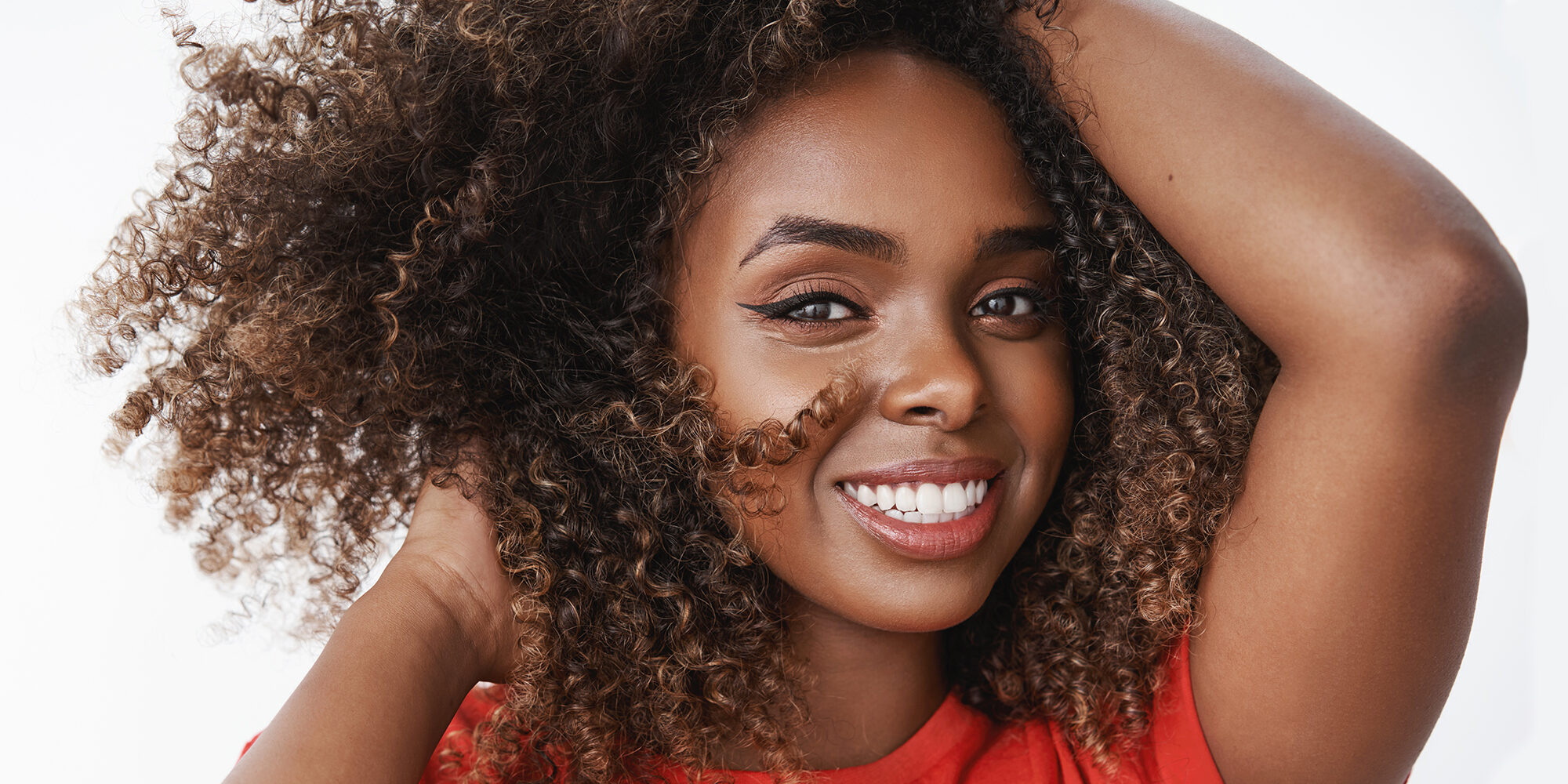
What’s The Next Carol’s Daughter?
The confluence of COVID-19 and the Black Lives Matter movement has accelerated emerging multicultural haircare brands’ march against multinational conglomerates that have dominated the category for decades.
Inspired by entrepreneurs like Madam C. J. Walker, the self-made millionaire who built her haircare business in the early 1900s, and, more recently, Lisa Price of Carol’s Daughter, which was snapped up by L’Oréal in 2014, women of color textured haircare brand founders are carving out a bigger piece of the American haircare segment valued by Statista at $12.3 billion. The category is so hot that high-profile celebrities like Tracee Ellis Ross, Gabrielle Union and Taraji P. Henson have entered it over the past year hoping to bring products to what they view as an underserved market.
Despite the buzz entrepreneurial women of color founders are generating in textured haircare, many lament unrelenting obstacles to convincing retailers to stock their products or amplify their store footage and investors to bet on the future of their businesses. Black women-led startups raised less than 1% of venture and angel funding from 2009 to 2017.
The funding landscape is evolving. Andrew Charbin, a managing director at investment bank The Sage Group LLC, says the growth of textured haircare brands, coupled with their rising relevance to consumers and efficacious products, make them prime acquisition targets for financial and strategic buyers, even at early stages.
Beauty M&A has slowed as a result of pandemic unease, but there’s still an appetite for important tactical deals. Puig picked up Charlotte Tilbury in June, and Henkel secured a majority stake in three Invisible Brands assets last month. The textured haircare segment’s persistent performance and lack of dependence on department stores is attractive.
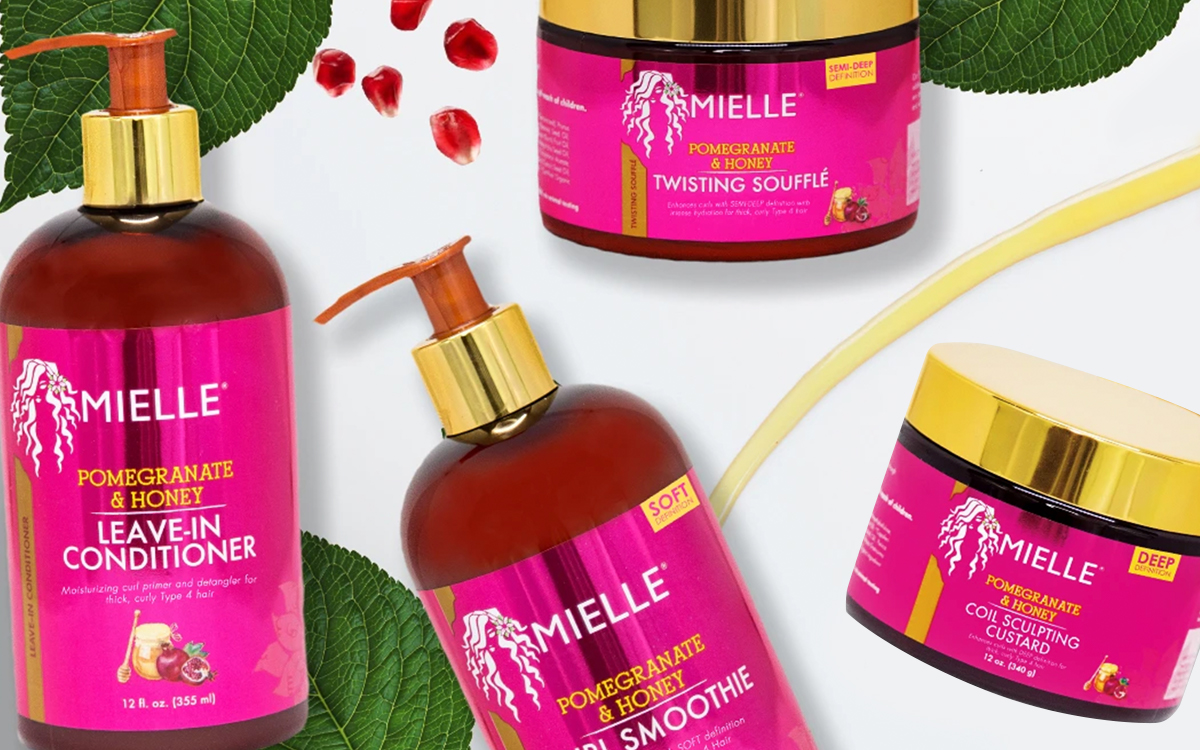
Sales of multicultural or textured haircare products increased almost 10% through May 2020 from the year before, per business consultancy Strategic Solutions International. In contrast, Statista pegs annual growth for the haircare category generally at 3% through 2023. Brands owned by Black women are the engines of dollar gains, says Strategic Solutions International president and CEO Romina Brown. They contribute 6% of multicultural or textured haircare sales, but are responsible for 18% of the growth in the space. Brown believes their growth is only due to intensify as the United States population diversifies.
What brand could become the next Carol’s Daughter? Financial and industry experts name Thank God It’s Natural, Mielle Organics, Curls, Briogeo and LUS Brands as leading possibilities. Textured haircare brands such as new Sephora entrant Adwoa Beauty, Camille Rose, Alikay Naturals, The Doux, Honey Baby Naturals, Kinky-Curly, Rizos Curls and Pattern Beauty, the Ellis Ross endeavor from incubator Beach House Group, are breaking into conversations as well. One financial source says everyone is talking about LUS Brands.
Sahar Saidi launched LUS Brands in January 2017 with a three-step system for achieving healthy curls consisting of Gentle & Moisturizing Shampoo, Ultra Hydrating & Detangling Conditioner and All-in-One. After a slow start—it sold 126 units in the first month—LUS has exploded. Last year, the direct-to-consumer specialist informed Beauty Independent it was profitably generating $1 million in monthly revenues. As of 2019, it nabbed around $1.2 million in funding from Sound Ventures, Marine Layer Investments, Kaktus Capital, Comcast Ventures and Y Combinator, among other investors.
“During COVID-19, every textured brand expanded.”
Brown highlights Mielle, now in 100,000 retail doors, as the fastest-growing Black-owned haircare brand for the year-to-date period ended May 2020. With salons, specialty retail and beauty supply stores mostly shuttered amid the pandemic, shoppers have migrated online or to essential retailers like drug, discount and grocery stores. “During COVID-19, every textured brand expanded,” says Brown, noting, “Sales in retail chains skyrocketed during this period.”
Mielle, founded by former nurse Monique Rodriguez in 2014, also saw a 156% quarter-to-quarter bump in earned media value in the second quarter of 2020 propelled by the wave of enthusiasm for Black-owned brands, according to research from influencer marketing platform Tribe Dynamics. Rodriguez says she tossed out Mielle’s 2021 plan when the pandemic hit in favor of connecting with the brand’s community to keep customers “emotionally, mentally and spiritually healthy” by hosting live interviews nightly.
Tribe’s data identified budding textured haircare brand, Curlsmith, as an EMV gainer. It accrued $1.5 million in EMV in the second quarter, representing a 160% leap from the prior quarter. Michal Berski, whose resume winds through L’Oréal, Unilever, Procter & Gamble and Louis Vuitton, founded Curlsmith in 2018.
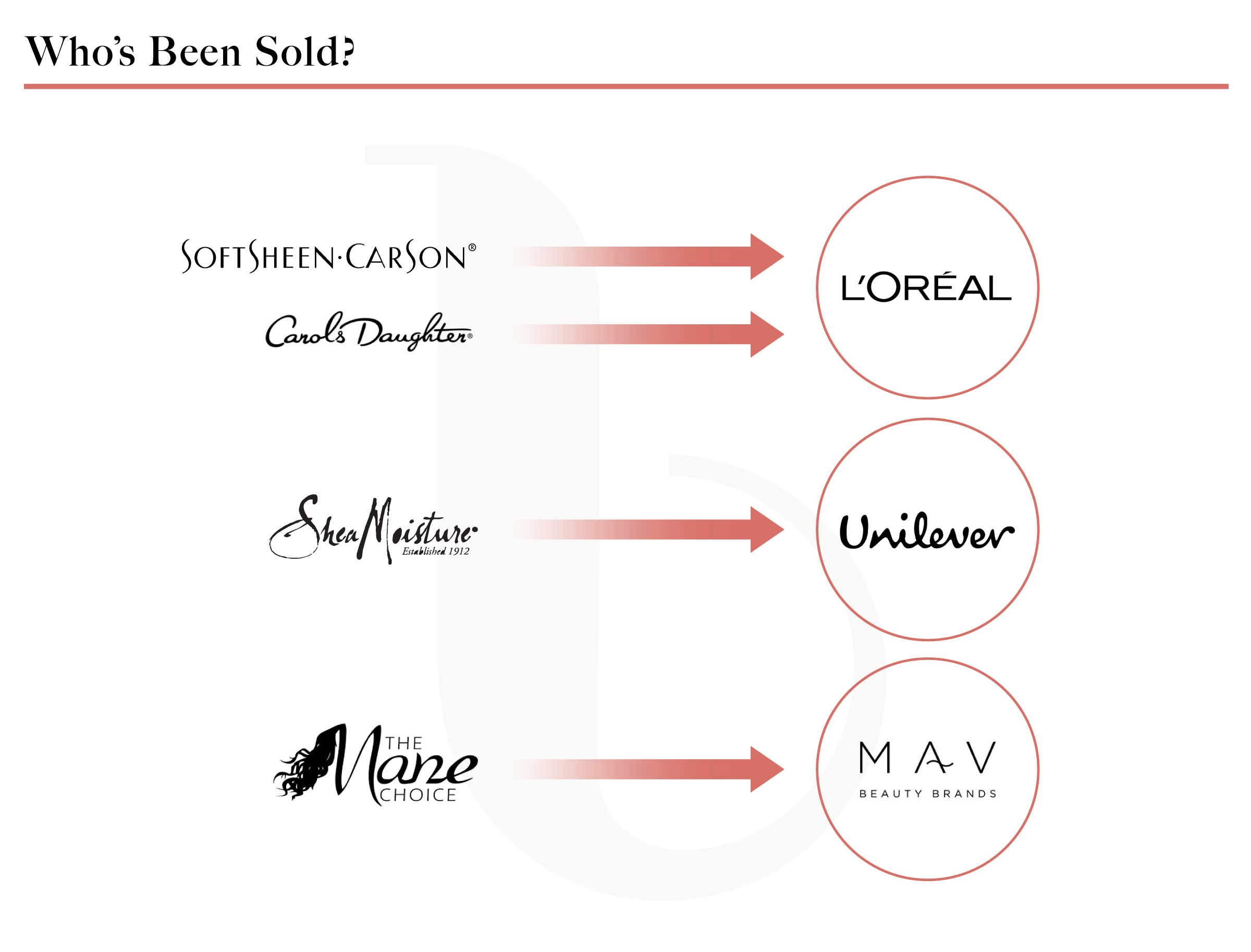
Spate, which uses search data to track beauty trends, detected spikes in searches for women-founded and Black-owned companies amid the pandemic and Black Lives Matter actions. Briogeo registered 66.7% growth in search interest from May to June 2020; Alikay Naturals jumped 53.8%; Camille Rose climbed 16.3%; and TGIN’s growth in search advanced 13.6%.
“The Black Lives Matter movement definitely increased the awareness for our brand. Many people did not even realize Camille Rose was a Black-owned brand,” says Janell Stephens, founder and CEO of Camille Rose. Chris-Tia Donaldson, founder of TGIN, attributed her brand’s uptick to word of mouth that spread as women looked for solutions in quarantine.
With limited shelf space and restricted store real estate traditionally allocated to multicultural brands, brick-and-mortar is a different beast than the online environment. Curls founder Mahisha Dellinger says big-box chains make it tough for smaller multicultural brands to compete against entrenched non-ethnic brands. She laments, “It is a struggle to get a seat at the table.”
“The Black Lives Matter movement definitely increased the awareness for our brand.”
Cornell McBride Jr., president of textured haircare brand Design Essentials, argues the retail paradigm is shifting as consumers turn away from legacy players and toward upstarts. “The corporate setting is too far away from the market,” he says. “Retailers are starting to understand where the innovation is taking place and, if they incubate these brands, they will drive sales.”
CVS is doing its part to put muscle behind Black-founded brands both online and in physical stores. The retailer reports that “over 40% of the brands in our textured hair assortments are Black-founded, Black-owned.” In the past year, CVS has expanded the product selection in its textured hair and color cosmetics categories by 35%. Brands in it are Eden BodyWorks, Alikay, Taliah Waajid, African Royale, Camille Rose, Curls, Sunny Isle, Kinky-Curly, Pink, S Curl, Design Essentials, Mixed Chicks, Honey Baby, Soultanicals Naturals, TGIN, The Doux, The Mane Choice, Urban Hydration, Uncle Funky’s Daughter, Miss Jessie’s and Mielle.
Target added a badge online for Black-owned or Black-founded brands. While the acknowledgement is generally appreciated, McBride says many consumers want to circulate money in Black communities and buying from Black-founded brands with the founders no longer involved doesn’t do so. McBride details consumers will “Google brands, and some will say I want a Black-owned line. Nothing against ‘Black-founded,’ but that might suggest the brand is no longer Black-owned. Consumers will make their own choice.”
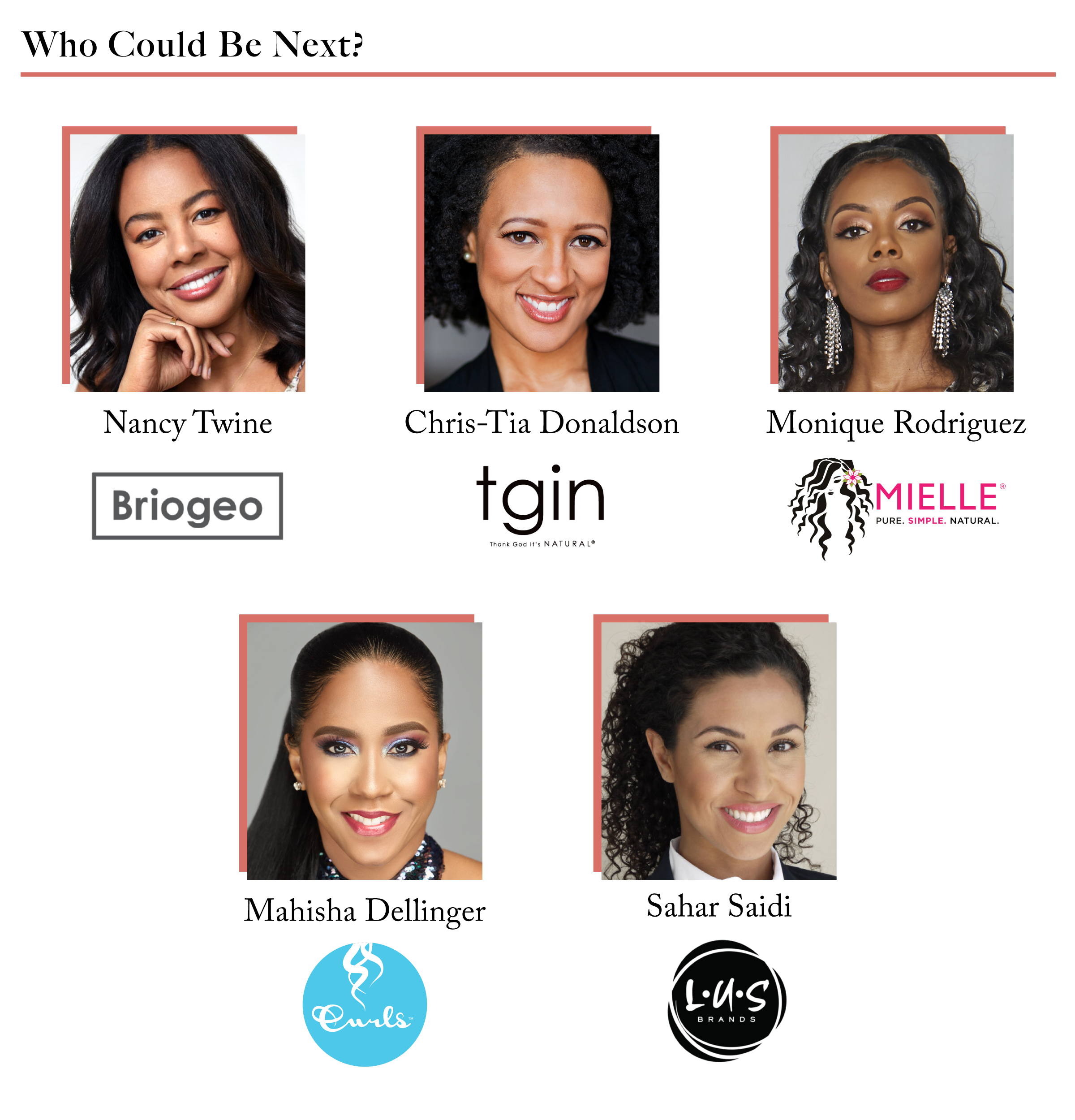
Another stride at mass retail is CVS, Walmart and Walgreens unlocking products created for Black consumers. “It is time,” says Tim Bunch, president and CEO of MAV Beauty Brands, which acquired textured haircare brand The Mane Choice last year. “No one wants to ask for a key be it for a DVD or hair products.” Beyond throwing away the key, industry experts assert big-box retailers should reimagine merchandising the shelves along with extending footage and placing products chain-wide.
In the past, retailers often limited products for textured tresses to select stores based on demographic parameters. But textured hair is a phenomenon that crosses demographics. TextureMedia, the Ultra/Standard-owned parent company of curly hair content and product discovery portal NaturallyCurly, finds that 63% of people report they have curly, wavy or coily hair.
Carol Sagers, executive director of the multicultural beauty organization Global Beauty Alliance, recommends merchandising by type of hair and underscores the hair-type orientation opens up the opportunity to go beyond race. “Change the nomenclature to talk about what products do,” she says. Michelle Breyer, COO of consumer products accelerator SKU and co-founder of NaturallyCurly, favors merchandising by need. She says, “People want to buy what works for their hair.” Bunch agrees, declaring, “There is no reason to have to walk across aisles and separate consumers.”
“Change the nomenclature to talk about what products do.”
Breyer also advises retailers to showcase founder stories in displays. Retailers like Ulta Beauty and Target have featured founder stories. Breyer says, “So much of the curl revolution has been driven by Black entrepreneurs. Retailers can help people see a snapshot of the people and passion behind the brands.”
Donaldson gives Ulta kudos for hitting the mark. “Their aisles speak to women of all ethnicities. Their aisles feel like they are where anybody can shop,” she says, referring to planograms focused on texture and hair type. “They also take a chance on small brands that are doing a good job.” Ulta has embarked on relationships with emerging brands with expectations set for their realities, a strategy Sagers wishes all retailers would follow.
Black consumers’ embrace of natural styles is an important factor in the textured haircare category’s momentum. They’ve been ditching relaxers. The transition to natural has been buoyed by the CROWN Act, legislation drafted in 2019 to ensure protection from discrimination against hairstyles associated with race and has been enacted by seven states.
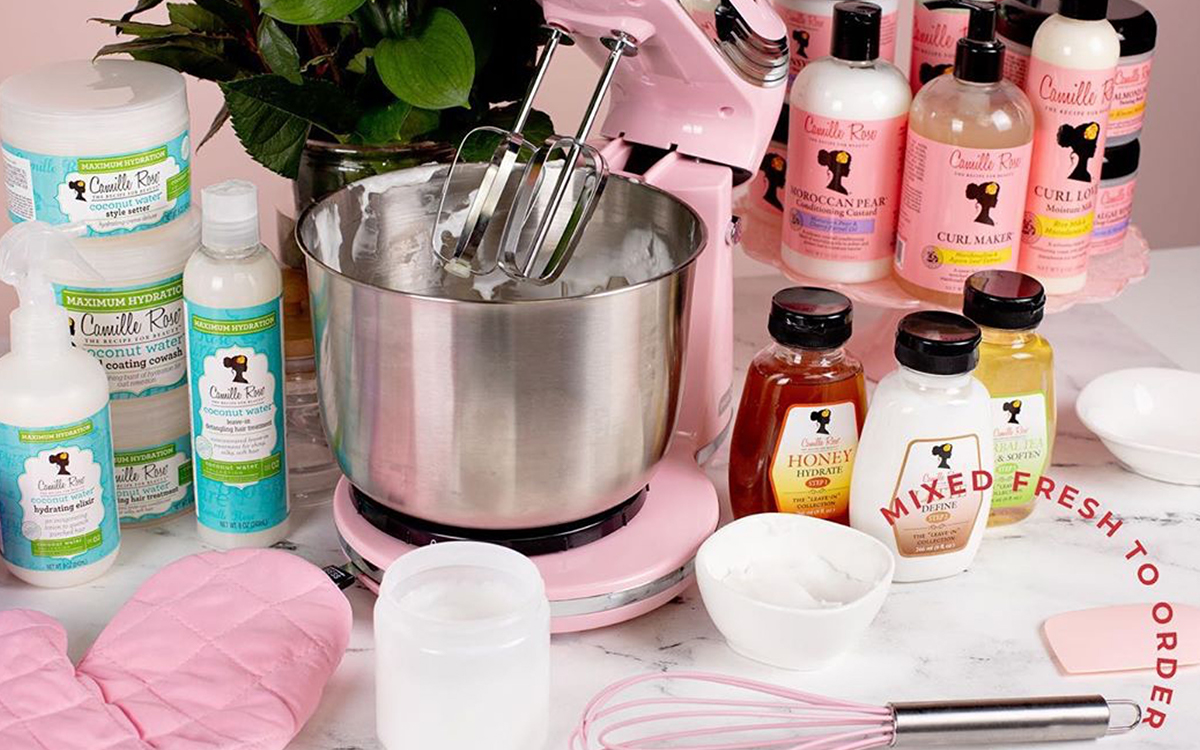
Natural doesn’t mean fewer products. In 2017, Mintel credited the progress of natural hair for sending shampoo sales up. Sagers points out Black women are opting to regularly wear a variety of styles, translating to greater haircare product sales. The prolific use of protective hairstyles, for example, has led to products designed specifically for them such as those in the scalp care area. Canviiy and Girl+Hair are nascent brands in the area.
Data measurement firm Nielsen has chronicled Black consumers over indexing in beauty spending, particularly in haircare spending. The buying power of non-white Americans surpasses $4.6 trillion to account for roughly 20% of the total buying power in the U.S. That buying power is due to mount with the country poised to become majority-minority by 2050.
In a textured haircare segment in which the role of Black women founders who understand the haircare needs of Black women consumers is integral, sales of brands aren’t universally welcome. Bunch says MAV made sure founder Courtney Adeleye’s imprint remains on The Mane Choice. “She is an owner of MAV Beauty and a major shareholder,” he says. “Her role is actually elevated.” In response to consumer concern when the sale went through, Adeleye filmed a video assuring fans she’s not going anywhere. While Bunch isn’t actively pursuing additional acquisitions at the moment, he’s certain other companies are on the hunt for textured haircare brands.
KEY TAKEAWAYS
- Sales of multicultural or textured haircare products increased almost 10% through May 2020 from the year before, per business consultancy Strategic Solutions International. In contrast, Statista pegs annual growth for the haircare category generally at 3% through 2023.
- In a tough economic and retail environment, textured haircare brands' lack of dependence on department stores, persistent performance and relative affordability make them attractive acquisition targets.
- With salons, specialty retail and beauty supply stores mostly shuttered amid the pandemic, shoppers have migrated online or to essential retailers like drug, discount and grocery stores. Budding textured haircare brands are gaining customers as a result.
- Thank God It’s Natural, Mielle, Curls, Briogeo and LUS Brands are among the textured haircare brands named by financial and beauty industry sources as possible acquisition targets.
- According to Strategic Solutions International, Mielle, available in 100,000 retail doors, was the fastest-growing Black-owned haircare brand for the year-to-date period ended May 2020.
- Due to the Black Lives Matter movement and the pandemic-related shift to e-commerce, online interest in Black-owned haircare companies has surged. According to the online search tracker Spate, the Black-owned haircare brands Briogeo, Alikay Naturals, Camille Rose and Thank God It's Natural saw spikes in search interest in May to June of this year.
- Retailers are recognizing the power of the textured haircare segment and breaking down store barriers that traditionally limited it. CVS, Walmart and Walgreens have unlocked products created for Black consumers. Increasingly, mass-market retailers are stocking up on emerging textured haircare brands in response to consumers being interested in trying something new.
- The textured haircare category has tailwinds that could continue its momentum. The United States is poised to be minority-majority by 2050.
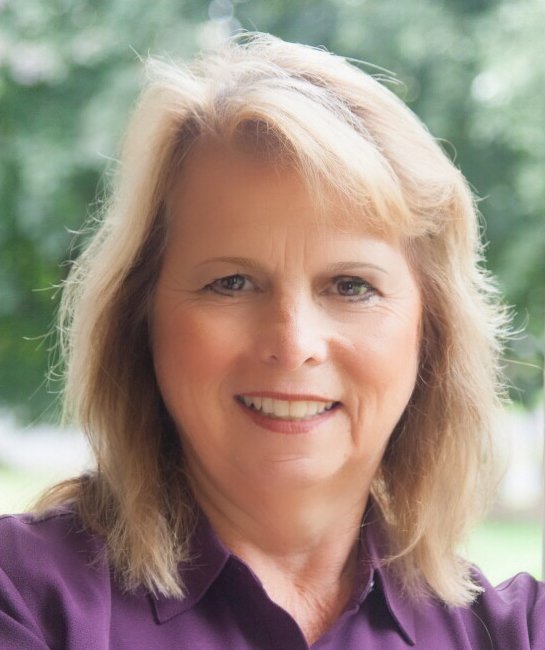

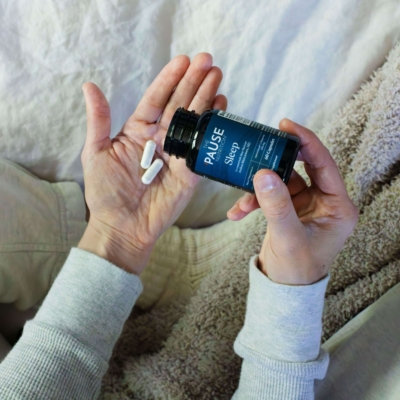


Leave a Reply
You must be logged in to post a comment.